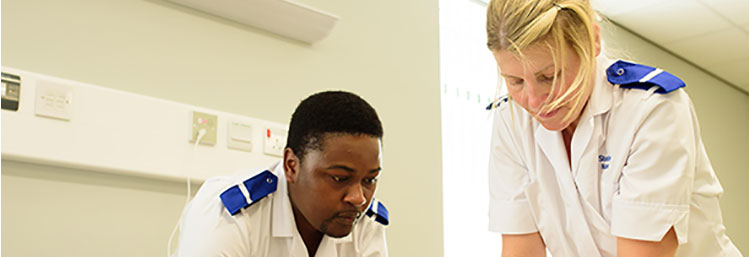
Nursing (Adult) – Mid Yorkshire Hospitals
BSc (Hons)
- Typical offer for 2025
- Duration
- UCAS code
- Start date
- Location
Suitable for applications.
I was worried about studying for a nursing degree, but I have felt incredibly supported by the staff, and the lectures are very engaging... Studying for a nursing degree is challenging, but it is worth it at The Mid Yorkshire School of Nursing.
Teaching, learning and assessment
There is a structured approach to teaching which will start with key reading, and or a directed activity, followed by a keynote lecture either as a cohort or collaborative field groups, this is consolidated by more directed activities for example group work, clinical case studies, simulated practice, elements of team and problem based learning, tutorials, debates and discussions.
Assessment methods used include essays, case studies, reports, workbooks, communications exercise, written and clinical examinations and portfolios. Practice experience is continuously assessed with a mid-placement formal formative assessment and a formal summative assessment.
Study support
Research
Terms and conditions of study
The University has a set of terms and conditions for all students accepting an offer to study on a course here at Bradford. This is called The Student Contract. This document sets out the Terms and Conditions which apply when you accept an offer of a place on a programme of study at the University of Bradford.
View our Student Contract for further details.
Transparency statement
Information about this programme and its modules has been published in advance of the academic year to which it applies. Every effort has been made to ensure that the information is accurate at the time of publication, but changes may occur given the interval between publishing and commencement of teaching. Any change which impacts the terms and conditions of an applicant’s offer will be communicated to them.
